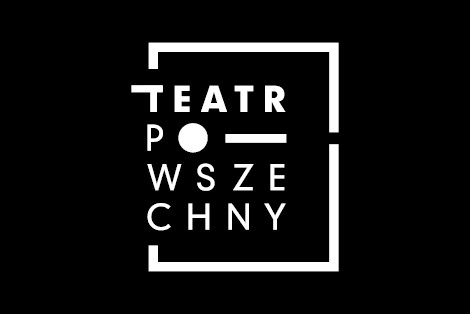
„Teatr społeczny” - wykład Justyny Sobczyk
-
TypTeatr / taniec
-
MiejsceHol Balkonowy
-
Godzina g. 18
-
Data 27.02.2016
Wykład w ramach projektu „Teatr powszechny”, wprowadzający widzów w tematykę teatru społecznego.
Justyna Sobczyk - pedagożka teatru i reżyserka. Ukończyła
studia podyplomowe pedagogika teatru w Berlinie, na Universität der Künste w
2004, uzyskując tytuł Master of Arts, wcześniej pedagogikę (UMK Toruń) oraz
Wiedzę o Teatrze (Akademia Teatralna w Warszawie), stypendystka GFPS
(Gemeinschaft für Wissenschaft und Kultur in Mittel und Osteuropa, Niemcy),
DAAD (Deutscher Akademischer Austausch Dienst, Niemcy), w 2013 roku otrzymała
stypendium Ministra Kultury i Dziedzictwa Narodowego.
Kieruje działem pedagogiki teatralnej w Instytucie Teatralnym im. Zbigniewa
Raszewskiego w Warszawie. Jest współzałożycielką Stowarzyszenia Pedagogów
Teatru. Absolwentka programów Szkoły Liderów: Laboratorium Innowacji Liderskich
oraz Dwa sektory, jedna wizja. Wraz z Zofią Dworakowską kieruje studiami
podyplomowymi "pedagogika teatru" na Uniwersytecie Warszawskim,
powołanymi przez Instytut Teatralny im. Zbigniewa Raszewskiego oraz
Instytut Kultury Polskiej Uniwersytetu Warszawskiego.
Justyna Sobczyk jest twórcą i opiekunem artystycznym Teatru 21, jedynej w
Polsce zawodowej grupy teatralnej tworzonej przez osoby zagrożone wykluczeniem
(chore na Trisomię 21, zwaną powszechnie Zespołem Downa oraz autyzm). Kierowany
przez nią Teatr 21 może poszczycić cię licznymi laurami, udziałem w wielu
krajowych i zagranicznych festiwalach, entuzjastycznymi recenzjami
najszacowniejszych europejskich mediów. We wrześniu tego roku będziemy mieli
przyjemność gościć ich w CK Zamek w ramach naszego projektu!
Teatr
społeczny - pod tym szerokim pojęciem kryje się wiele sposobów rozumienia
funkcjonowania sztuk performatywnych we współczesnym
społeczeństwie. Projekt realizowany w 2016r. przez CK Zamek odnosi się
jedynie do pewnego wycinka tego zjawiska - do wykorzystywania warsztatu i
narzędzi teatralnych w pracy z osobami mającymi trudności z adaptacją w
dzisiejszym świecie.
Terapeutyczne, oczyszczające oddziaływanie dramatu dostrzegano już w
starożytności, a w wieku XX teatr i psychoterapia zaczęły współistnieć, na
szeroką skalę, wpływając na siebie wzajemnie. W latach dwudziestych ubiegłego
stulecia Jakub Moreno opracował podstawy psychodramy, metody pracy z osobami
chorymi psychicznie, przy użyciu narzędzi teatralnych. Od tego czasu teoria i
praktyka uprawiana przez terapeutów doczekała się wielu analiz i opracowań,
rozwijając wiedzę na temat skuteczności emocjonalnego uwalniania się jednostki
od przenoszonych na scenę problemów. Stworzono nowe pojęcie – dramaterapię,
postulującą odejście od bezpośrednich, wewnętrznych problemów leczonych osób,
na rzecz skupienia się na pozytywnym oddziaływaniu samego uczestniczenia w teatralnym procesie twórczym. Członkowie
powstałego w 1979 roku w USA Narodowego Towarzystwa Dramaterapii i ich następcy
zwrócili uwagę na terapeutyczną wartość poszerzania repertuaru zachowań,
docierania do treści pozaświadomych, otwarcia i pobudzania aktywności życiowej,
poprawy samooceny oraz nauki wyrażania nieuporządkowanych uczuć i myśli.
Odkryto i potwierdzono szczególnie pozytywne skutki wchodzenia w role na
scenie, będącej pewnego rodzaju terapeutycznym schronieniem.
Najważniejsza wspólna płaszczyzna łącząca ludzi teatru i psychoterapeutów
zarysowała się przy próbach określenia „ja”, wyrażanego w odbywającym się na
scenie akcie twórczym. W przypadku aktorów głównym motywem poszukiwań „siebie”
jest potrzeba szczerości artystycznego przekazu, wyrażanego poprzez
powtarzalną, zdyscyplinowaną spontaniczność. Terapeuci natomiast próbują odkryć
to, co ukryte zostało za barierami powodującymi zahamowanie rozwoju jednostki,
utratę umiejętności dostosowania się do wewnętrznej i zewnętrznej
rzeczywistości. Obie strony, stosując techniki teatralne dotykają tych samych
pytań i formułują na nie podobne odpowiedzi.
We współczesnym świecie stosowanie technik teatralnych nie ogranicza się do
pracy z osobami chorymi psychicznie. Trening z zakresu plastyki gestu i ruchu,
ćwiczeń oddechowo- wokalnych i rytmicznych, poprzedzający próby do spektaklu,
stał się narzędziem pracy z osobami dotkniętymi upośledzeniem wszelkiego
rodzaju, zarówno psychicznym, umysłowym, jak i narządów ruchu oraz
poszczególnych zmysłów. Okazało się, że
również problemy osób wykluczonych z powodów społecznych, skuteczniej
niż werbalne omówienia rozwiązuje, realizująca się w działaniu, terapia. Dla
uczestników zajęć teatralnych odgrywanie
ról to doświadczanie zachowań i
umiejętność dokonywania wyborów, które mogą zostać przeniesione następnie do
własnego życia.
PO WYKŁADZIE ZAPROSILIŚMY WIDZÓW NA PIERWSZY SPEKTAKL W RAMACH PROGRAMU „TEATR
POWSZECHNY” – „ENDSPIEL” BERLIŃSKIEGO THEATER RAMBA ZAMBA (GODZ. 20.00, SALA
WIELKA)
Wykład zorganizowany w ramach „Teatru powszechnego” - całorocznego, autorskiego projektu performatywnego realizowanego przez Centrum Kultury Zamek w Poznaniu, złożonego ze spektakli tworzonych przez środowiska osób zagrożonych wykluczeniem ze względu na stan zdrowia, pochodzenie czy status społeczny.

